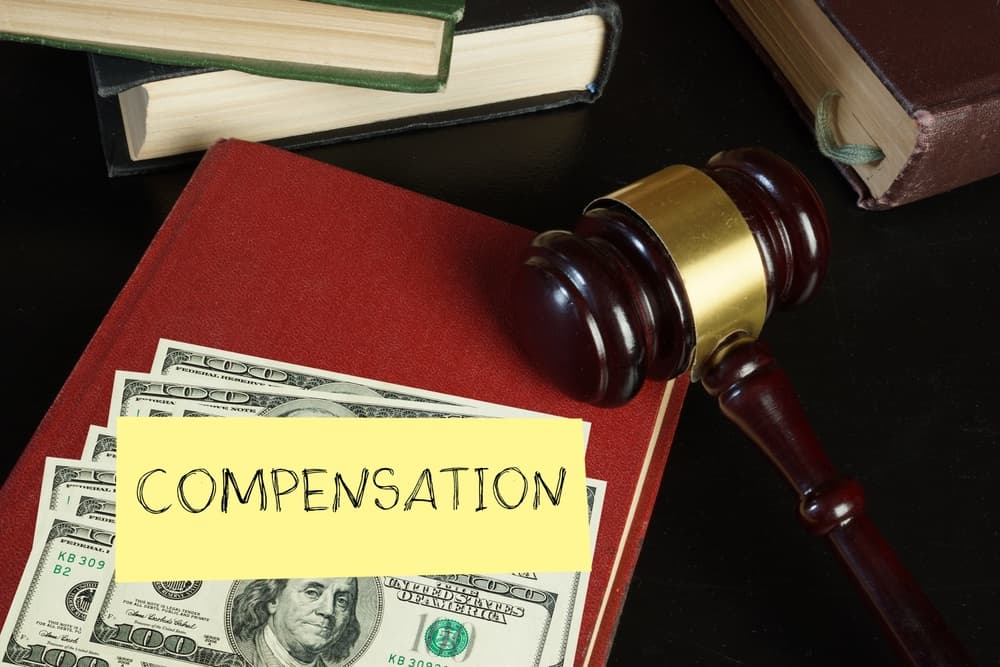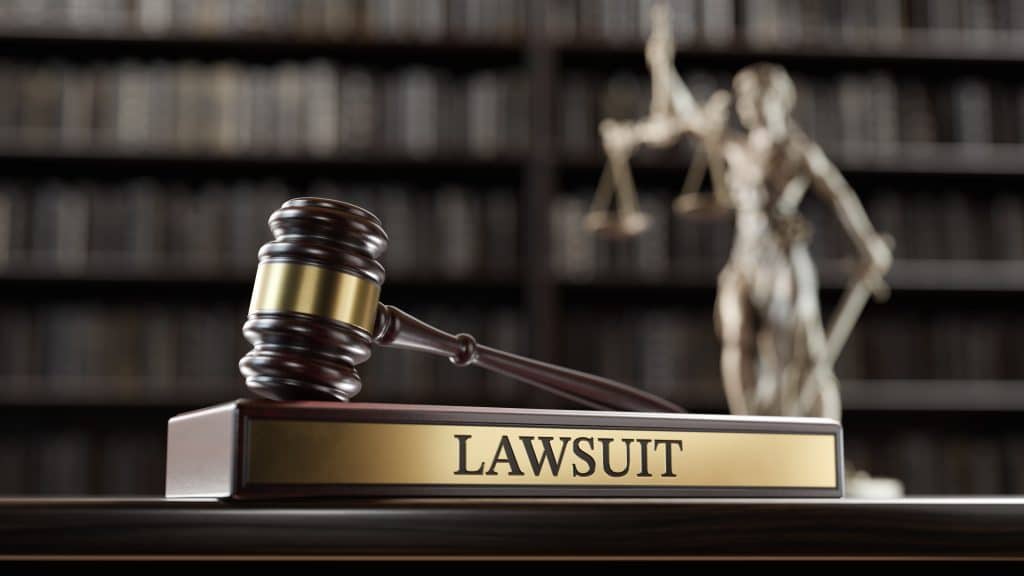The sheer violence of a collision with a commercial truck is unlike any other vehicle wreck. An 80,000-pound tractor-trailer inflicts a level of destruction that leaves passenger cars unrecognizable and their occupants with catastrophic, life-altering injuries.
As you lie in a hospital bed, or sit at home trying to process the event, the full weight of what has happened begins to set in. The physical pain is immense, but it is soon joined by a cascade of financial worries and the terrifying uncertainty of what your future now holds.
While the trucking company and its team of insurance adjusters and lawyers are already working to minimize their financial exposure, a truck accident lawyer can help you focus on what you can sue for to secure the full measure of compensation you need to rebuild your life.
Truck Accident Lawsuit Guide
- Truck Accident Lawsuit Guide
- The Full Spectrum of Compensation You Can Pursue After a Truck Wreck
- Compensation for Lost Income and Diminished Earning Capacity
- What You Can Sue For Regarding Loss of Life's Pleasures
- Identifying All Parties You Can Sue After a Commercial Truck Accident
- Suing the Trucking Company for Its Systemic Failures
- Pursuing a Claim Against Negligent Third Parties
- Frequently Asked Questions About Truck Accident Claims
- Secure Your Future. Demand Full Accountability.
The Full Spectrum of Compensation You Can Pursue After a Truck Wreck
When you file a lawsuit against a negligent trucking company, you are seeking financial compensation, legally referred to as "damages." This is not a single lump sum pulled from a hat.
It is a meticulously calculated amount designed to cover every single loss you have suffered and will suffer in the future as a direct result of the crash. Pennsylvania law divides these damages into two primary categories.
- Economic damages: This category includes every tangible, verifiable financial loss. These are the bills, the lost paychecks, and the out-of-pocket costs that have a clear dollar amount attached to them.
- Non-economic damages: This category covers the immense, intangible human cost of the collision. These are the losses that do not come with a receipt but represent the profound impact the injuries have had on your life, your happiness, and your relationships.
Recovering your economic damages: The tangible financial losses
The first step in building your case is to account for every dollar the truck accident has cost you and will cost you for the rest of your life. This requires a detailed analysis of your past expenses and a well-supported projection of your future needs. An incomplete accounting of these damages can leave you with devastating financial shortfalls years down the road.
Reclaiming past and future medical expenses
The medical costs associated with a catastrophic truck accident can easily run into the hundreds of thousands or even millions of dollars over a lifetime. Your lawsuit can demand compensation for every cent of this care.
Your claim for medical damages can include payment for:
- Ambulance transportation and emergency room services from the day of the crash.
- All hospitalizations, including stays in the Intensive Care Unit (ICU) and surgical procedures.
- Inpatient and outpatient rehabilitation, including physical, occupational, and speech therapy.
- Prescription medications needed to manage pain, prevent infection, and treat your injuries.
- Medical devices and equipment such as wheelchairs, hospital beds, prosthetics, and home modifications like ramps or lifts.
- The cost of in-home nursing care or placement in a long-term care facility if you are permanently disabled.
- All future projected medical costs, including revision surgeries, ongoing therapy, and lifelong medication needs. This is often established through a document called a life care plan, which is created by a medical professional to map out your anticipated medical needs for the remainder of your life.
Compensation for Lost Income and Diminished Earning Capacity

A serious injury does not just take a toll on your body; it can take away your ability to earn a living and provide for your family. The law allows you to demand compensation for the income you have lost and the career that was stolen from you.
The damages you can sue for related to your work and income include:
- Past lost wages: This is a direct reimbursement for the salary, hourly wages, and other income you lost while you were out of work and recovering.
- Lost benefits: You can recover the value of lost bonuses, commissions, overtime pay, and contributions to your retirement accounts.
- Loss of future earning capacity: This is one of the most significant components of an economic damages claim. If your injuries prevent you from returning to your previous job or from working at all, you can demand compensation for the full amount of income you would have earned over the course of your career. This loss is calculated by a vocational or economic professional who analyzes your education, work history, and the extent of your permanent limitations.
Suing for non-economic damages: The human cost of the collision
While economic damages cover your financial losses, non-economic damages are meant to compensate you for the profound human impact of the truck accident.
This is the part of the claim that acknowledges your suffering and the ways in which your life has been permanently diminished. For many victims of catastrophic accidents, the value of these damages is the largest component of their settlement or verdict.
Compensation for physical pain and emotional suffering
This category addresses the immense physical and mental toll of your injuries. It is compensation for the day-to-day reality of living with the consequences of someone else's negligence.
A claim for pain and suffering can encompass:
- The physical pain from the initial trauma and all subsequent medical procedures.
- The ongoing, chronic pain that may last for the rest of your life.
- The mental anguish and emotional distress of living with a disability.
- Post-traumatic stress disorder (PTSD), which can manifest as flashbacks, anxiety, and a fear of driving.
- Depression that often accompanies a life-altering injury.
- The humiliation, embarrassment, and emotional trauma caused by permanent scarring or disfigurement.
What You Can Sue For Regarding Loss of Life's Pleasures

A severe injury can rob you of the ability to enjoy the activities and relationships that once brought you joy and fulfillment. The law recognizes this as a distinct loss for which you can demand compensation. This is often referred to as "loss of enjoyment of life."
Examples of losses that fall under this category include:
- The inability to participate in hobbies you once loved, such as sports, hiking, gardening, or playing music.
- The loss of your ability to care for and play with your children or grandchildren.
- The damage to your relationship with your spouse, legally known as loss of consortium, which includes the loss of companionship, affection, and intimacy.
- The inability to travel, attend social gatherings, or engage in your community as you once did.
Identifying All Parties You Can Sue After a Commercial Truck Accident
One of the key differences between a car crash and a truck crash is the number of potentially responsible parties. A thorough investigation often reveals that the accident was not just the result of a single driver's mistake but the product of a chain of failures involving multiple companies.
Identifying and pursuing claims against all negligent parties is a key strategy for ensuring you can recover the full amount of your damages.
Holding the negligent truck driver accountable
The truck driver is almost always the first point of focus. An investigation can uncover evidence that the driver acted carelessly or recklessly, violating traffic laws and federal safety regulations.
Common forms of driver negligence include:
- Violating federal Hours of Service rules, which leads to drowsy driving. These rules are strictly enforced by the Federal Motor Carrier Safety Administration (FMCSA) to prevent fatigue-related crashes.
- Speeding or driving too fast for road and weather conditions.
- Driving under the influence of alcohol or drugs.
- Engaging in distracted driving, such as using a cell phone.
- Failing to perform mandatory pre-trip safety inspections.
Suing the Trucking Company for Its Systemic Failures

In many cases, the trucking company (the motor carrier) bears even more responsibility for a crash than its driver. The company has a legal duty to ensure its operations are safe.
When they cut corners on safety to increase profits, they can be held directly liable for the harm that results.
You can sue the trucking company for its own negligence, which includes:
- Negligent hiring: Hiring a driver with a known history of traffic violations, DUI convictions, or a poor safety record.
- Inadequate training and supervision: Failing to properly train drivers on safety procedures or failing to monitor their logbooks for Hours of Service violations.
- Pressuring drivers to break the rules: Creating a corporate culture that encourages or implicitly demands that drivers speed or drive beyond their legal hour limits to meet unrealistic delivery schedules.
- Failure to maintain the fleet: Neglecting to perform regular, required maintenance on their trucks' brakes, tires, lights, and other critical safety equipment.
Pursuing a Claim Against Negligent Third Parties
The chain of responsibility can extend even further. A complete investigation may reveal other companies whose negligence contributed to the crash.
Other potentially liable parties you can sue include:
- The truck or parts manufacturer: If the truck accident was caused by a defective component on the truck, such as faulty brakes or a tire that failed, the manufacturer of that part can be held liable.
- The cargo loader: If the cargo inside the trailer was improperly loaded, secured, or was overweight, it can shift during transit and cause the driver to lose control. The company that loaded the freight may be at fault.
- A maintenance company: If the trucking company outsources its maintenance to a third-party repair shop, and that shop performs a faulty repair that leads to a mechanical failure, the maintenance company can be sued.
- Another driver: In some multi-vehicle pileups, another passenger car driver may have acted negligently and contributed to the circumstances that caused the truck to crash.
Frequently Asked Questions About Truck Accident Claims
The trucking company's insurance offered me a quick settlement. Why shouldn't I take it?
Early settlement offers are a tactic used by insurers to resolve claims quickly and cheaply, before you know the full extent of your injuries and future needs. These initial offers are almost always a small fraction of what your case is truly worth and will require you to sign away your right to any future compensation.
How is suing a trucking company different from suing a regular driver after a car crash?
The main difference is the complexity and the stakes. A truck accident case involves federal regulations, corporate defendants with vast resources, and multiple layers of insurance coverage. The evidence is far more technical, and the potential for catastrophic damages is much higher, making the case a high-stakes legal battle from day one.
What are punitive damages, and can I get them in my truck accident case?
Punitive damages are a special category of compensation that is not meant to compensate you for a loss but to punish the defendant for extreme or outrageous conduct and to deter similar behavior in the future. In Pennsylvania, you can sue for punitive damages if you can prove the defendant acted with a conscious disregard for the safety of others, such as a trucking company knowingly putting a driver with multiple DUI convictions on the road.
How long do I have to file a lawsuit for a truck accident in Pennsylvania?
The statute of limitations for filing a personal injury or wrongful death lawsuit in Pennsylvania is generally two years from the date of the accident. While there are some very limited exceptions, failing to file your case within this time frame will permanently bar you from recovering any compensation.
Secure Your Future. Demand Full Accountability.
You have one opportunity to get the financial compensation you need to cover a lifetime of costs resulting from a catastrophic truck accident. The decisions you make in the weeks and months ahead will permanently impact your family's future.
The legal system provides a path to hold negligent corporations and their drivers accountable, but it is not a path you should walk alone.
At Pribanic & Pribanic, we stand with families who have been devastated by the carelessness of the trucking industry.
We use our decades of trial experience to uncover the truth, to prove the full extent of your losses, and to demand the maximum compensation the law allows. Let us handle the legal battle so you can focus on the hard work of healing.
Contact our Pittsburgh office for a free, confidential consultation to discuss your case. Call Pribanic & Pribanic for a Free Consultation: (412) 281-8844